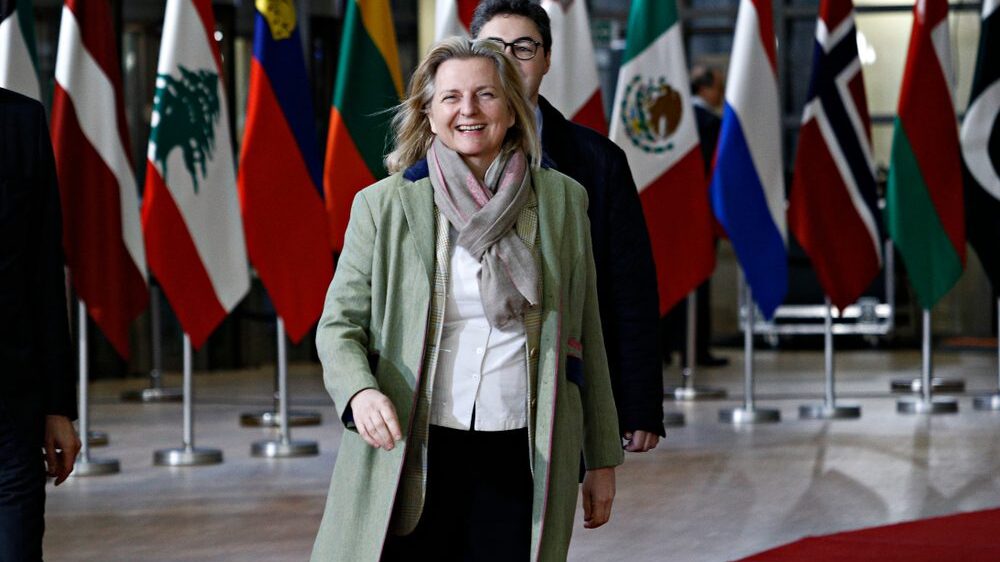
Karin Kneissl
Photo: Alexandros Michailidis / Shutterstock.com
Austria’s former Minister for Foreign Affairs has attracted media attention after surfacing in a rural Russian village and announcing that she plans to stay in Russia for the foreseeable future. Karin Kneissl, who served as head of Austrian foreign affairs between 2017 and 2019, said that her anti-NATO views ruined her career prospects in the West.
Kneissel was spotted during the week at a local festival in the small Russian village of Petrushovo, 350 kilometres southeast of Moscow.
In an interview with the Russian press, Kneissl confirmed that she had been living in a rented vacation home in the village and that rural life in Russia reminded her of her childhood environment in Austria.
She was strongly criticised by the Austrian press for her alleged Russian sympathies and was forced to resign as a director of the Russian oil company Rosneft following Moscow’s invasion of Ukraine.
#Austria #Russia.Former Austrian #ForeignMinister Karin #Kneissl has settled inthe village of #Petrushovo in the #Ryazanregion,intends to stay there for at least a month.She is persecuted because she is vs the war: "I had to leave my old life, start over, and at 60 it's not easy" pic.twitter.com/1rsunoGmea
— Donato Yaakov Secchi (@doyaksec) August 8, 2023
She left Austria in 2020 for France and then Lebanon, claiming that her critical views of Ukraine had made her a “political refugee” and left her professionally blacklisted.
On her official Telegram page, Kneissl confirmed that she was staying in Petrushovo and would be attending multiple conferences in the next few weeks.
The former chief Austrian diplomat is understood to have started teaching energy policy at St. Petersburg University in conjunction with the Kremlin-funded think tank Geopolitical Observatory for Russia’s Key Issues (GORKI).
Kneissl, who has worked both as a journalist and an Austrian diplomat since the early 1990s, garnered media notoriety after footage appeared of her dancing with President Putin at her wedding in 2018. As foreign minister, her tenure included a controversial investigation into claims she had a role in an attempted pro-Russian shadow intelligence agency founded by senior Austrian government officials.
Former Austrian foreign minister Karin Kneissl, who infamously danced with Putin in 2018, has settled in the small Russian village of Petrushovo.
— Euromaidan Press (@EuromaidanPress) August 9, 2023
She says she was invited to St. Petersburg State University "to teach the oil & gas market." https://t.co/UPn8hMfC0a pic.twitter.com/opxBqL2DjC
Her political opponents have cited her as an example of the extent to which Russia has penetrated Austrian government circles, with one former KGB spy insinuating that Kneissl had been groomed to be a Russian intelligence asset since the 1990s.
Since the invasion of Ukraine, Austria has maintained its decades-long neutrality despite a barrage of criticism from both the EU and the US about not doing enough to sanction Russian business interests operating in the country.
Kneissl was nominated by the right-wing FPÖ party to fill the foreign affairs role during the controversial FPÖ-ÖVP coalition, which ended mysteriously following the Ibizagate affair.
Kneissl’s opinions about Zionism, immigration, and former European Commission President Jean-Claude Juncker, whom she referred to as a “cynic of power,” made her an easy target for multiple media hit pieces during her time as foreign minister before her resignation in 2019.
Following her departure from top-level Austrian politics, Kneissl spoke of alleged death threats made against her for her stance on Ukraine, telling the Washington Post in July 2022 that she feared for her life.
Despite its nominal neutrality, Austria has earned a reputation for being an espionage hot spot for Russia and the West. It is excluded from the Club de Berne, a prestigious European intelligence-sharing forum, due to the security risks of Russian spying.
Former German Chancellor and leader of the Social Democrats Gerhard Schröder is another senior Western official who has flirted with Moscow after the invasion of Ukraine. His party has faced repeated calls to expel him due to his close business ties with Russia.
